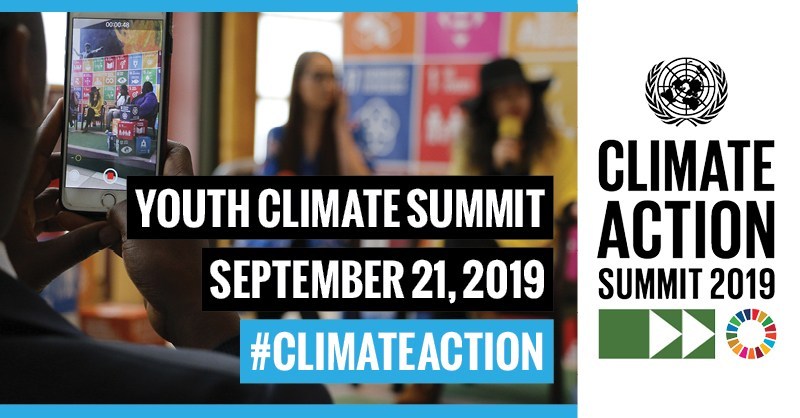The Real Winner of the Young Entrepreneur’s Pitch Competition, IMHO
Anthony William Karambelas is Editor-In-Chief of Statement Magazine and served as a UNA-USA Virtual Blogger Fellow at the UN Youth Climate Action Summit.
This past summer, the UN Envoy on Youth launched a thoughtful initiative to tap into one of the most under-utilized sources of brainpower: young innovators. Around the world, aspiring engineers and visionaries were called to submit proposals in a campaign known as the Summer of Solutions to one of three categories. First, the climate information challenge, calling for a solution that might streamline climate and market information access. Second, the circular economy challenge, demanding an innovative way to utilize ICT tools for a Circular Economy. And lastly, the Ethical Fashion Challenge, asking for similar types of innovation, but related instead to Ethical Fashion and Textiles.
Without a doubt, the solutions exhibited by the five young entrepreneurs and engineers at the Summit’s Pitch Competition were impressive. Three speakers developed apps to target niche constituents, everything from small farmers to shopaholics, while the other two envisioned technologies that might encourage a second look at widespread unsustainable practices of storage and consumption.
The winner, as deemed by a panel of C-suite execs, was Anurag Saha Roy, developer of an SMS/USSD interface platform that assists small farmers in Sub-Saharan Africa by providing actionable insights, as well as preparing them for vicissitudes in weather and pests. My suspicion is that Roy’s proposal was deemed the most concrete, developed, and widely implementable solution. But if I were to name a winner, it would be another.
The Grow Your Own Cloud venture, presented by Monika Selina Seyfried, is a biotechnological project out of a Huxley novel (except, of course, its applications pursue the liberation of the world, not its demise). Before her presentation, I admit that I thought nothing of plants aside from their capacity to convert CO2 into oxygen, no doubt a useful mechanism, but hardly a stand-alone solution to climate change (plant more…?). Little did I know, they had a secondary–and equally astonishing–propensity for data storage. Seyfried’s project envisions a world where carbon-intensive silicon data farms have all but been superseded by data forests, literally bringing the “cloud” down to Earth. Crazy, I know.
This solution offers a two-way benefit: not only does it eliminate current unsustainable modes of data storage, but it also creates a convenient new incentive to curb deforestation.
I am so excited to see how Grow Your Own Cloud will flourish in the coming years. They’re a small team and while they may not have won the competition, they are unequivocally suited to lead this world into a cleaner (and better documented) future.




